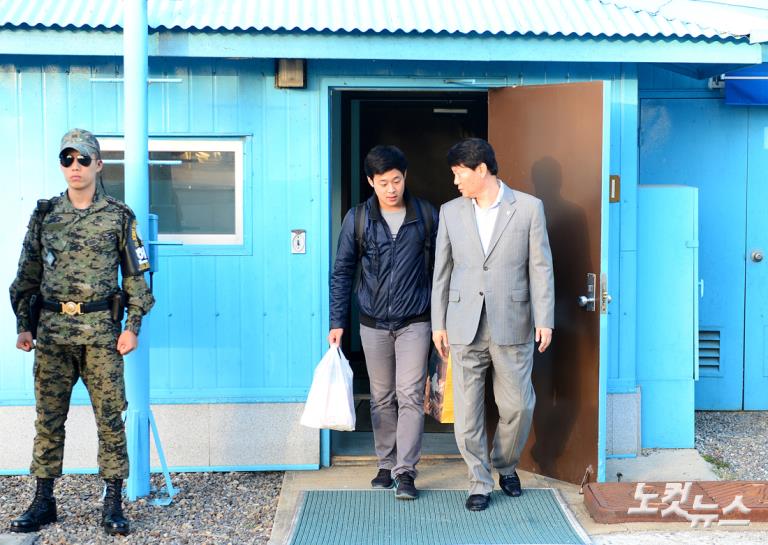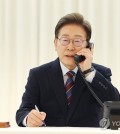- California Assembly OKs highest minimum wage in nation
- S. Korea unveils first graphic cigarette warnings
- US joins with South Korea, Japan in bid to deter North Korea
- LPGA golfer Chun In-gee finally back in action
- S. Korea won’t be top seed in final World Cup qualification round
- US men’s soccer misses 2nd straight Olympics
- US back on track in qualifying with 4-0 win over Guatemala
- High-intensity workout injuries spawn cottage industry
- CDC expands range of Zika mosquitoes into parts of Northeast
- Who knew? ‘The Walking Dead’ is helping families connect
N. Korea sends detained S. Korean NYU student back home
SEOUL (Yonhap) — North Korea on Monday repatriated a 21-year-old South Korean student who has been detained there since April, the Unification Ministry said, in what could be a conciliatory gesture by the North to South Korea.
The communist nation freed Joo Won-moon, a New York University student with a U.S. green card, through the truce village of Panmunjom, earlier in the day, according to a ministry official. Joo was arrested on April 22 after allegedly illegally crossing into the North from China.
“It’s a relief that North Korea has decided to repatriate our national, Joo,” the official noted, adding that the North should also send home three other South Koreans still held in the country — missionary Kim Jung-wook, Kim Kuk-gi and Choe Chun-gil.
The North’s Korea Central News Agency said in a short dispatch that the North deported Joo on humanitarian grounds.
The North’s abrupt move is seen as a conciliatory sign at a time when the country has ratcheted up missile and nuclear threats ahead of a major anniversary.
Dampening the hard-won conciliatory mood on the Korean Peninsula, the North has strongly hinted that it will launch a long-range rocket or conduct a fourth nuclear test as it is preparing for the 70th anniversary of the founding of the ruling Workers’ Party of Korea, which falls on Saturday.
South and North Korea reached a landmark deal on Aug. 25 to defuse military tension and resume the reunions of families separated by the 1950-53 Korean War.
Experts said that the North’s move may be intended to promote its regime as an advocate of human rights ahead of its anniversary.
In an interview with U.S. news cable network CNN in May, Joo admitted that he had intentionally entered the North on the belief that his arrest could have a good effect on inter-Korean relations.
Unlike Joo’s case, the other three South Koreans faced criminal punishment as they were sentenced to hard labor for life on charges of spying for Seoul’s intelligence agency.
“By releasing Joo, North Korea appears to give South Korea a message showing that the North protects human rights,” said Yang Moo-jin, a professor at the University of North Korean Studies.
The professor said that nevertheless, along with the upcoming family reunions, Joo’s repatriation is likely to set the stage for better inter-Korean ties.

















